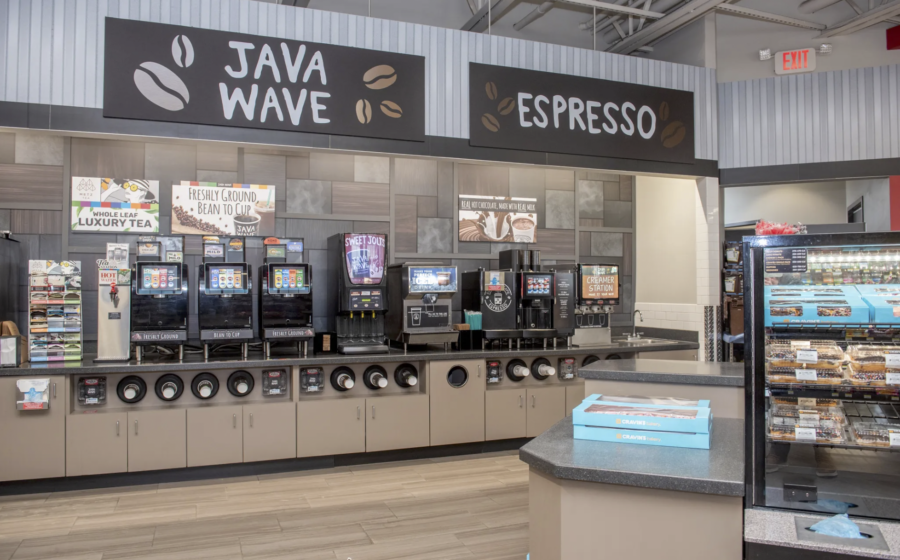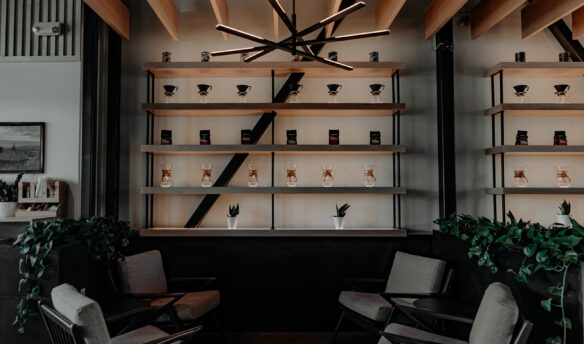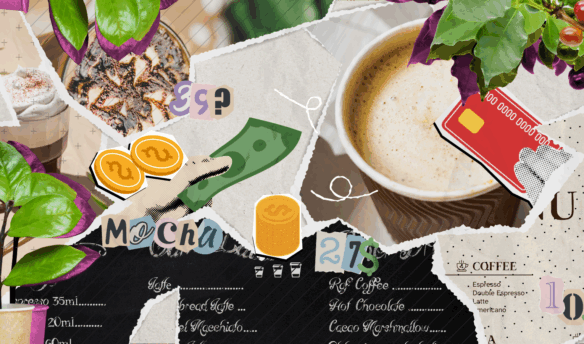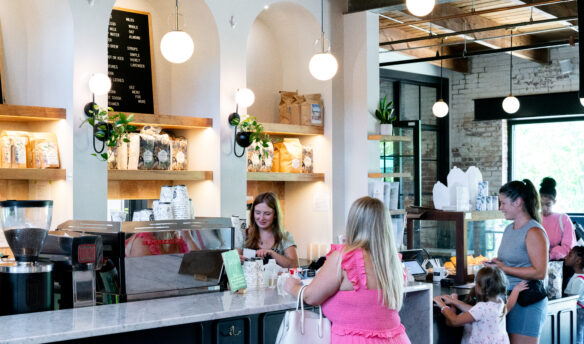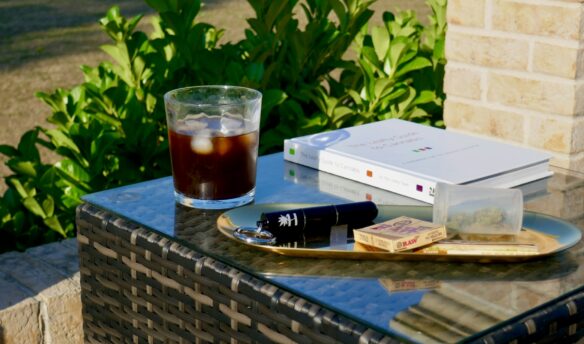This article is sponsored by our partner, Franke Coffee Systems.
Coffee from convenience stores and gas stations has long had a subpar reputation. If you’ve ever purchased a cup of coffee at 11pm in the desperate hope of fueling a late-night road trip, it was probably scalding hot, bitter, and lacking any flavor nuance. You know, exactly what you’d expect from “gas station coffee.”
But the days of mediocre coffee at convenience stores and gas stations are fading, as many businesses put more emphasis on the quality of their coffee programs. And consumers are taking notice, whether they buy coffee to accompany a long drive or as part of their daily commute.
“Coffee programs have drastically changed in C-stores over the last five years,” says Gage Johnston, marketing manager for Franke Coffee Systems, a global supplier of professional coffee and foodservice equipment. “Consumers are more aware than ever of good-quality coffee, and [convenience store] operators are working to match this within their programs.”
Evolving Consumer Preferences
Gas stations and convenience stores are shifting toward high-quality coffee for a number of reasons. Johnston points to the National Coffee Association’s National Coffee Data Trends Report, saying, “The report notes that 52% of U.S. consumers agree that the quality of coffee from a C-store isn’t as good as the coffee from a cafe or quick-service restaurant [QSR].”
But C-stores have been observing the success of coffee shops—and are learning from it. “C-stores are drawing inspiration [from coffee shops] through early emulation and slowly adjusting as they need for their core demographic,” says Johnston.
Johnston sees the influence of specialty coffee playing out in an interesting way: While some consumers may not want to wait in line at a cafe or pay specialty prices, they still expect high-quality drinks from the places they patronize. That’s led to a new (and underserved) market of potential coffee drinkers.
“Consumers that prefer specialty coffee and cafes are generally sticking to that, but their desire for quality and value is bleeding into other demographics,” he says. “Now, their cohorts shopping at C-stores are wanting that same quality, variety, and experience that they see on social media.”
As quoted in a recent article on CStoreDecisions, National Coffee Association CEO William “Bill” Murray notes that “U.S. consumers spend $7.4 billion on coffee in convenience stores annually, and $110 billion on coffee and related goods across all venues. Also, a whopping 99% of past-month convenience store coffee buyers were satisfied with the coffee they purchased.”
On the flipside, the specialty coffee sector is also seeing convenience become a leading purchase decision factor among consumers. With companies across America pushing “return to office mandates,” consumers are more on-the-go than ever, now relying on specialty coffee options such as RTD cold coffees, mobile ordering from local coffee shops, and even high-quality instant coffee. As a result of this consumer shift, regional and national drive-thru chains are additionally gaining traction among consumers, such as Clutch Coffee Bar, 7Brew, and Dutch Bros.
But convenience stores aren’t making the investment in higher-quality coffee offerings for the sake of speed or taste alone. Family Express is a small, local chain of convenience stores with 81 locations around Northwest and North Central Indiana, which recently launched a revamped coffee program called Java Wave®. According to Family Express CEO Gus Olympidis, the decision to update the brand’s coffee offerings was influenced by a shift in overall consumer spending patterns.
“We’re all very mindful that, within our channel, we’re going to be selling less fuel over time due to the improved fuel efficiency of vehicles,” says Olympidis. “We also know we’re going to be selling less cigarettes, and cigarettes have been a mammoth category for the [convenience store] industry.”
He says that many convenience stores have noted this decline, and that sales channels which were once profitable and reliable are beginning to dry up. For savvy C-store owners, investing in quality coffee is therefore a move to replicate once-profitable revenue streams—one that many businesses are taking seriously.
Evolving C-Store Brewing Equipment
For years, convenience store coffee was synonymous with stale drip left on a hot plate for hours. Today, most C-stores are equipped with tools to offer a much wider range of coffee drinks. Customers now have options like cold brew coffee, iced lattes, and even single-origin coffees and beverage customizations.
Bean-to-cup brewing technology, such as the A1000 Flex from Franke, makes this possible. The A1000 Flex is a push-button machine that allows customers to choose from a variety of beverages, beans, milk options, and add-ins, such as syrups and sugars. Their custom drinks are then prepared within a minute or two. “Equipment innovations have been rapidly entering the marketplace, including flavor/syrup stations, optimized milk foam technology, cold foam, and more precise brewing equipment to match brewed coffee recipes found in QSRs,” says Johnston.
Family Express offers its guests an array of coffee options as part of its Java Wave® program, ranging from dark-roast blends to single-origin coffees from countries such as Colombia, Brazil, and Guatemala. Customers can choose from this selection, and pick from a range of hot or iced beverages, all displayed on the large screens of Franke’s bean-to-cup machines. After an order is placed, the machine automatically brews the bean or blend selection into a cup using a programmed recipe.
Franke’s product lineup of modular bean-to-cup brewing equipment, known as the A Line, gives convenience stores, hotels, offices, and restaurants a wider range of on-demand brewing and customization options. Businesses can choose a machine that delivers a variety of drip, espresso, and cold coffee options, such as the A1000 Flex, or a compact brewer that focuses on a tighter range of drip and iced coffee selections, like the A300 Fresh Brew.
“We’re seeing [customization] as the next evolution of really competing with coffee shops,” says Chad Bowman, vice president of sales at Franke Coffee Systems. “You’ve already got the audience there, whether they’re there for food, for fuel, or a break. So instead of losing those customers across the street to a coffee shop, this offering allows you to capture that customer.”
Beyond customization, bean-to-cup technology enables convenience stores to provide an experience they previously lacked: freshly brewed coffee. While previous convenience store brewing equipment enabled employees to brew large volumes, such as a gallon or more, at once, this often meant unconsumed coffee was left out for hours, losing freshness over time.
Instead, with on-demand coffee brewed through bean-to-cup equipment from companies such as Franke, gas station customers are no longer limited to stale, scalded coffee.
Low Prices, Rewards, and Subscriptions
As prices continue to grow, coffee consumers are increasingly aware of how much their daily caffeine habit costs. Convenience stores are uniquely positioned to combat these budgetary concerns by offering personalized, premium coffee products at a reasonable price.
This consumer concern was among the many reasons why Family Express decided that investing in an improved coffee program was a necessity. “An upscale coffee experience is not an elective for us,” explains Olympidis. “The additional advantages of this program include the elimination of waste and reduction in labor cost that you see in the C-store coffee programs of yesteryear.”
With bean-to-cup brewing technology, C-stores are able to control their expenses and cut down on waste and labor costs. Instead of having a staff member brew an entire pot of coffee that ultimately ends up in the trash after several hours, on-demand brewing equipment allows a single cup of coffee to be brewed for the consumer.
As a result, convenience stores can competitively price their coffee products due to the optimization of labor and waste costs. Their size and ability to buy at volume also give them greater purchasing power in the market, and enable them to offer strategic marketing initiatives such as rewards programs and subscriptions. This combination of loyalty programs paired with low prices incentivizes customers to return for their fill of fuel—whether for their cars or their caffeine levels.
Wawa, for example, reports that it sells 60 coffees to reward program members every minute. The East Coast convenience store chain’s rewards program delivers points to customers every time they purchase, which can then be redeemed for items inside the store, as well as fuel discounts. Another convenience store chain, GetGo, offers “Free Coffee Mondays” to its rewards customers. “Family Express initiated a subscription program a few months ago and it is working remarkably well for us,” says Olympidis.
Could Coffee Shops Become Obsolete?
Between low prices, customized coffee options, and budget-conscious consumers, it may seem like convenience stores are out to topple the coffee shop market. But Johnston doesn’t believe this will happen.
“Coffee shops are the ‘third place’ and are likely to remain that way within the coffee consumer demographic for a while,” he explains. “Convenience stores are for those who have needs while on the go, want a stop on their way to and from work [or] are on a road trip.”
The self-serve nature of convenience store-style coffee doesn’t come with the welcoming hospitality of a barista. This is where coffee shops can continue to shine, and deliver a memorable out-of-home coffee experience.
Johnston also notes that coffee shops can likewise be inspired by the strategies convenience stores are now implementing. “Coffee shops can also take away the fact that consumers like accessibility and convenience,” he notes. “Offering mobile ordering, loyalty apps, and drive-thrus can increase a coffee shop’s revenue potential.”
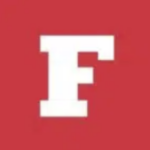
Sponsored by FRANKE COFFEE SYSTEMS
Franke Coffee Systems, a division of the Franke Group, is a technology and solution provider of professional automatic coffee machines. Our passion for the best coffee quality motivates us to elevate the customer experience through sharing state-of-the-art innovations and profound industry expertise.



